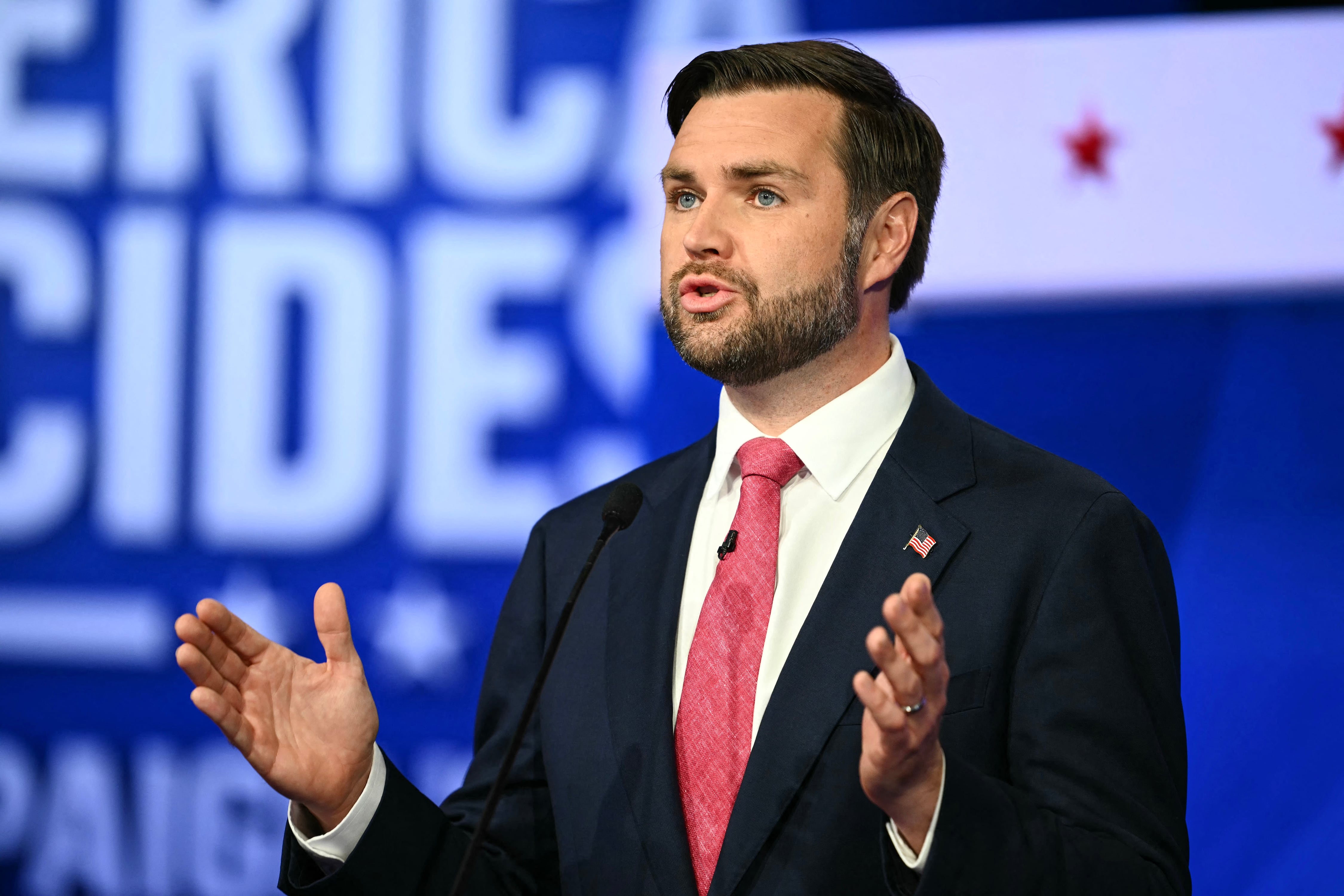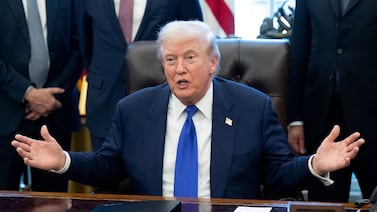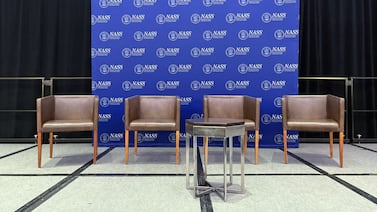Votebeat is a nonprofit news organization reporting on voting access and election administration across the U.S.
This news analysis also appears in Votebeat’s free weekly newsletter. Sign up to get future editions, including the latest reporting from Votebeat bureaus and curated news from other publications.
At nearly the end of Tuesday night’s vice-presidential debate came a simple but important question, directed at GOP candidate JD Vance, about certifying the presidential race. By dodging the question and attempting to portray January 2021 as a peaceful transfer of power, Vance opened up a chasm between him and his Democratic opponent, Minnesota Gov. Tim Walz, about how differently the two see threats to democracy.
After describing the mountain of evidence debunking Donald Trump’s claims of a stolen 2020 election, CBS News moderator Norah O’Donnell reminded Vance of his past remarks about how he would have rejected certifying the 2020 election and pointed out that legal experts say that move would be “unconstitutional and illegal.”
Then she asked him, “Would you again seek to challenge this year’s election results even if every governor certifies the results?”
“I think we’re focused on the future,” Vance said. “We need to figure out how to solve the inflation crisis caused by Kamala Harris’s policies, make housing affordable, make groceries affordable, and that’s what we’re focused on.”
“But I want to answer your question,” he continued, “Because you did ask it.”
She did.
He emphasized that “there were problems in 2020” and that Americans should debate those issues, “and that’s all I’ve said and all Donald Trump has said.” Then he pivoted to talk about censorship as the real threat to democracy.
Walz called Vance’s answer “troubling” — which is a fair assessment given that Trump has said and done much more than claim there were problems with the 2020 election. He used his time to press Vance on the original question and said that Jan. 6 was “a threat to our democracy in a way we had not seen,” resulting from Trump’s refusal to admit his loss.
“Did he lose the 2020 election?” Walz directly asked Vance.
“Tim, I’m focused on the future,” Vance responded.
“That is a damning non-answer,” Walz concluded.
Vance’s response aligns his credibility on election issues with Trump’s rigged election narrative — codifying on a national debate stage what he has previously said, unequivocally and repeatedly: that he would have declined to certify states’ original election results if he had been vice president in 2020.
Here Vance leans into a stance — “there were problems with the 2020 election” — popular in some conservative circles that enables politicians to distance themselves from Trump’s explicit, and non-credible, claims of fraud by insisting instead that the conditions of the 2020 election were unfair to Trump.
In the past, Vance has purported “facts that cannot be fact checked” as a convenient sidestep. (All of these things can, actually, be fact checked.) He alleged that the Chan Zuckerberg Initiative-backed election grants increased Democratic turnout, that a court decision in Pennsylvania represented an indictment of the state’s elections, and that social media suppressed news coverage about Hunter Biden’s laptop in October 2020.
It echoed a remark Vance made in February when asked how he would have handled the job of certifying the 2020 election in Congress: “If I had been vice president, I would have told the states, like Pennsylvania, Georgia and so many others, that we needed to have multiple slates of electors and I think the U.S. Congress should have fought over it from there. That is the legitimate way to deal with an election that a lot of folks, including me, think had a lot of problems in 2020.”
At Tuesday’s debate, Vance selectively portrayed January 2021 as what he sees as a peaceful transfer of power.
“Remember [Trump] said that on January 6 the protesters ought to protest peacefully. And on January the 20th, what happened? Joe Biden became the president, Donald Trump left the White House,” Vance said, implying that the only duty of the president to enable a peaceful transfer of power is to physically leave the White House on Inauguration Day. Whether that person has conceded their loss, or filed more than five dozen lawsuits in opposition to that loss, or riled up his or her supporters to the point of deadly violence before that inevitable departure is, apparently, immaterial to his definition.
Walz rejected Vance’s evasions, saying he was “pretty shocked.”
“When Mike Pence made that decision to certify that election — that’s why Mike Pence isn’t on this stage,” said Walz. “What I’m concerned about is, where is the firewall with Donald Trump? Where is the firewall if he knows he can do anything, including taking an election, and his vice president’s not going to stand [up] to it?”
Jessica Huseman is Votebeat’s editorial director and is based in Dallas. Contact Jessica at jhuseman@votebeat.org.



